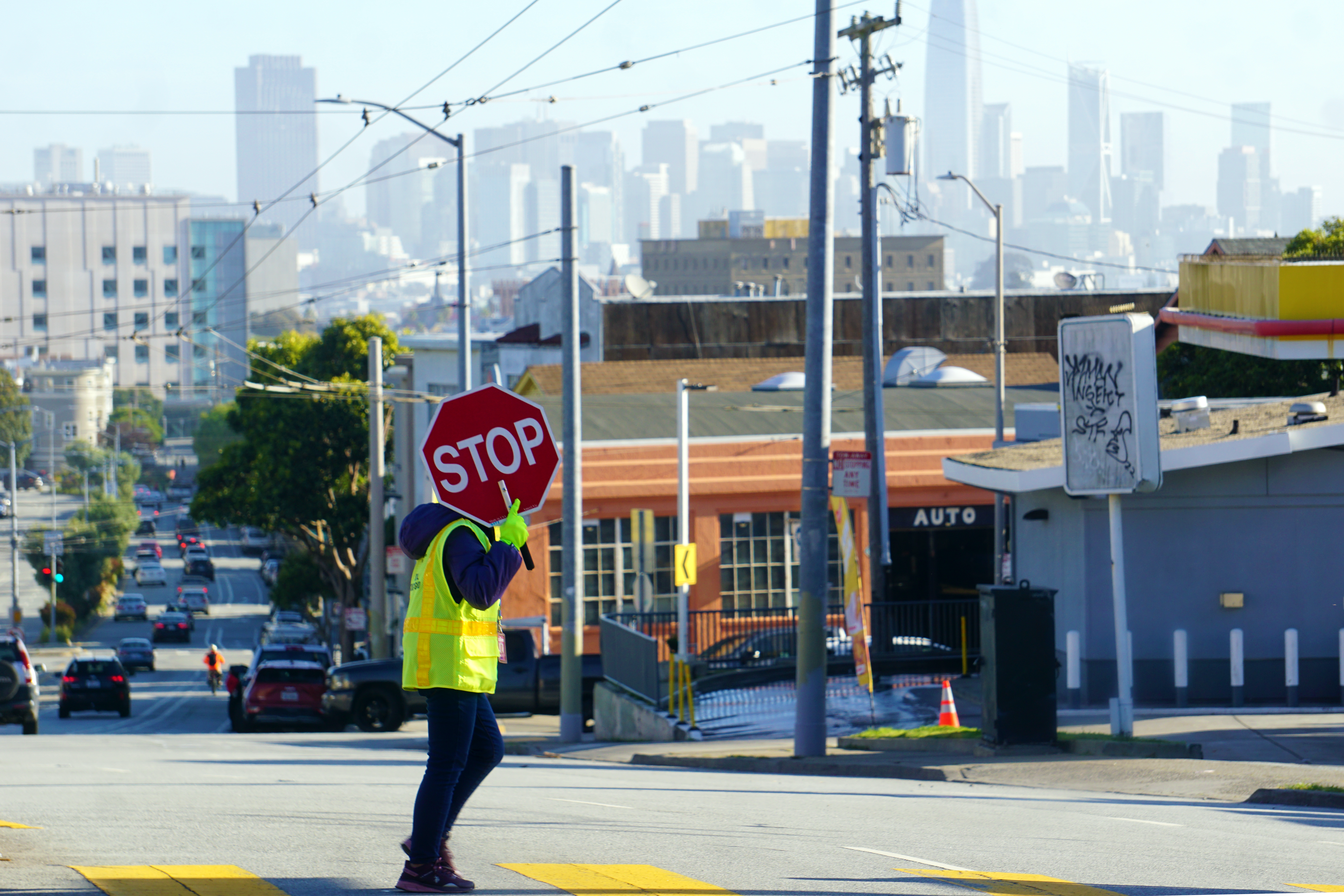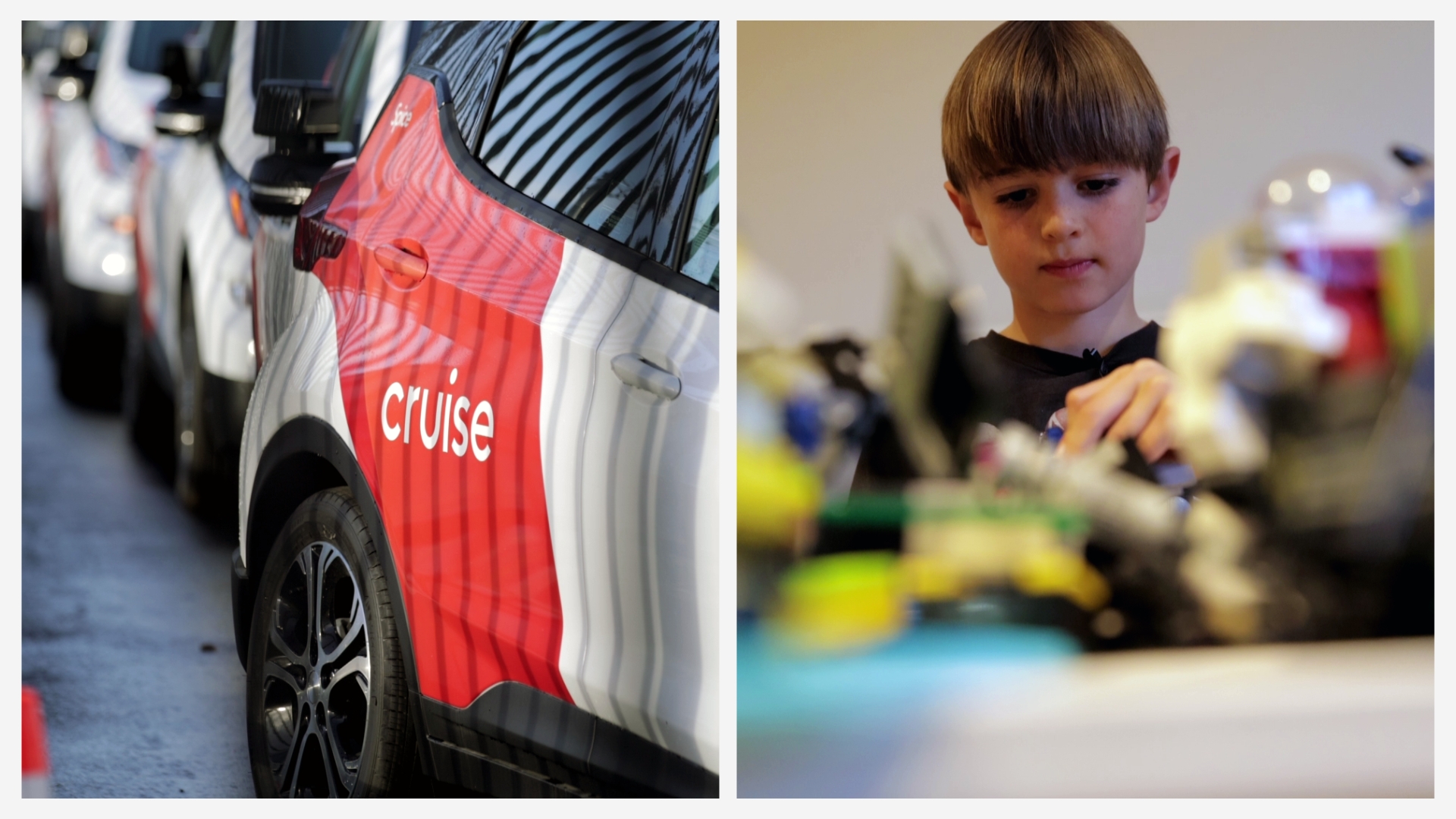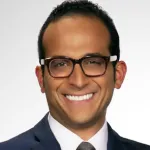San Francisco city officials plan to meet with leaders at the driverless car company Waymo next month to address safety concerns highlighted in a recent NBC Bay Area investigation, which revealed possible hazards posed by the company’s fleet of self-driving vehicles.
“Of course, it concerns me,” San Francisco Mayor London Breed told NBC Bay Area. “We are doing everything we can within our authority to hold them accountable.”
City leaders vow to take action following NBC Bay Area investigation
In May, NBC Bay Area surveyed 30 school crossing guards stationed at more than 20 different schools across San Francisco and found nearly 25% reported being nearly hit by a Waymo driverless car, over the past year, while guiding families along crosswalks.
“I viewed your report as a wakeup call,” said Joel Kamisher, the union representative for San Francisco’s more than 170 school crossing guards employed by the San Francisco Municipal Transportation Agency. “One of these near misses could turn into somebody actually being hurt.”
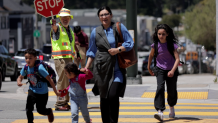
Officials with the SFMTA and mayor’s office said city leaders plan to raise the crossing guards’ concerns in a meeting with Waymo’s policy team in mid August. Waymo, Google’s sister company, is one of three fleets permitted to operate driverless cars in San Francisco without a safety operator sitting in the front seat, according to the California DMV. While Waymo owns the vast majority of self-driving vehicles in the city, its longtime competitor, Cruise, has remained off the road ever since California regulators revoked its permit last October, citing an “unreasonable risk to public safety.”
Each of the near misses recalled by crossing guards in NBC Bay Area's survey involved a driverless vehicle operated by Waymo.
Get a weekly recap of the latest San Francisco Bay Area housing news. Sign up for NBC Bay Area’s Housing Deconstructed newsletter.
Driverless car companies aren't required to disclose "close calls"
“The autonomous vehicle companies have been pretty good about working with us on certain things, but not necessarily with providing us the kind of data we need to understand exactly the kinds of incidents that you are talking about,” Breed told NBC Bay Area.
Federal and state regulators require autonomous vehicle companies to disclose details involving collisions, however, there is no requirement to divulge near misses, such as those described by school crossing guards in the recent NBC Bay Area report.
Currently, state and federal regulators largely dictate the rules governing autonomous vehicles, however, Breed said she supported a state-wide effort to give individual cities the power to write their own regulations relating to self-driving vehicles. The legislation, Senate Bill 915, was met with strong opposition from the driverless car industry, which warned such a change could lead to a chaotic patch-work of transportation laws that could hinder innovation. Despite garnering support during initial votes in the legislature, the bill ultimately died last month.
Waymo isn't commenting on frequency of near misses
NBC Bay Area asked Waymo to disclose details about the frequency of close calls involving its driverless fleet, but the company declined to respond.
While self-driving car companies are allowed to keep their near misses secret, NBC Bay Area was able to locate somewhat of a partial paper trail by obtaining all complaint records submitted to the California Department of Motor Vehicles last year.
Of the more than 200 complaints, roughly 30% detailed safety concerns in crosswalks. Of those, about one in five complaints involved Waymo. The bulk of the rest centered on Cruise, which has said safety is a "critical priority," and added it "investigates concerns."
Driverless car complaints submitted to DMV detail eerily similar safety concerns
“We had to hit the car with our hand,” said one complainant, describing an interaction in a crosswalk with a Cruise autonomous vehicle. “I’ve almost been hit,” another person wrote in reference to a Waymo driverless vehicle.
School crossing guard Theresa Dorn told NBC Bay Area she was nearly by a driverless Waymo vehicle on three separate occasions while guiding children and their families through the crosswalk.
“I just don’t think it’s very safe,” Dorn said. “[The cars] did not recognize me in the intersection.”
When questioned about the survey results, Waymo said without specific details involving the locations and dates of the incidents, it was unable to offer explanations as to what its cars may have done or why.
NBC Bay Area invited Waymo officials to meet at an actual crosswalk to clarify how its driverless cars are programmed to respond to crossing pedestrians and bicyclists, but the company declined to be interviewed.
“Our system is designed to give pedestrians time and space to safely and comfortably move, reassuring them that they don’t need to rush, whenever possible,” a Waymo spokesperson wrote in a statement. “We’ve designed our system that way to take into account safety, courtesy, and a detailed understanding of the law.”
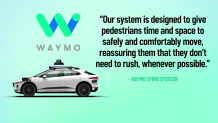
Federal transportation records show Waymo’s driverless fleet has been involved in more than 300 collisions, nationally, over the past three years. Based on descriptions of the accidents Waymo submitted to the National Highway Traffic Safety Administration, it appears many of the incidents were the fault of other vehicles involved, which were driven by humans. At least 24 of the crashes involved injuries, according to data from NHTSA.
Waymo has repeatedly said it is proud of its performance and safety record. Last year, Waymo's own analysis of crash and injury rates found its driverless fleet of vehicles "significantly outperformed" that of human drivers. Transportation experts, however, warn it is still too early to draw comparisons since autonomous vehicles drive less than one percent of the total miles driven by humans each year. Annually, drivers log more than 3 trillion miles on U.S. roadways, according to the U.S. Dept. of Transportation. Waymo's self-driving vehicles have driven more than 20 million miles since the company began dispatching driverless cars in March 2019.
While some crossing guards reported frightening experiences with driverless cars, others told NBC Bay Area they have found the high-tech vehicles to be more capable drivers than their human counterparts.
“I’ve almost been hit by parents, not driverless cars,” one crossing guard said.
Another added, “they stop better than people.”
Still, the novel technology has some San Francisco parents, like Jessica Torres, feeling nervous.
“[Crossing guards] are the ones keeping our kids safe,” Torres said. “So if they don’t feel safe with these cars, I, as a parent, don’t feel safe.”
As a bus driver, Torres said she is worried about an overreliance on technology.
“There’s some things that you can cut corners on, like self-checkout,” Torres said. “Not transit … people could die.”
San Francisco school district mum on what it's doing to address crossing guards' safety concerns
Whether officials with the San Francisco Unified School District agree with those concerns is unclear.
NBC Bay Area requested to speak with the district's superintendent, Dr. Matt Wayne, but his office declined the interview request.
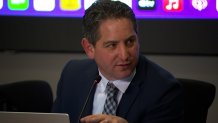
In a statement, a school district spokesperson wrote, “student safety is our number one priority,” however the district would not disclose whether it ever contacted Waymo to address the ongoing concerns from crossing guards.
“I feel like they should definitely do something about it now before something happens,” Torres said. “Somebody needs to be in control.”
Watch our entire investigative series
- Part 1: Driverless cars seek San Francisco expansion despite worries tech is unsafe
- Part 2: CPUC votes to expand driverless car operations in San Francisco
- Part 3: San Francisco city attorney files motion to pump the brakes on driverless cars
- Part 4: Google's Waymo says insurance data shows its driverless cars are safer than humans
- Part 5: Hit-and-run driver strikes pedestrian, tossing her into path of Cruise car in San Francisco
- Part 6: Driverless trucks and robot deliveries promise fewer traffic jams than robotaxis
- Part 7: Cruise says its robotaxis can now better detect emergency vehicles
- Part 8: California DMV orders Cruise's driverless cars off the road
- Part 9: Driverless cars immune from traffic tickets in California under current laws
- Part 10: GM's Cruise lays off nearly 25% of its workforce
- Part 11: Waymo's driverless cars surpass 7 million miles, but are they safer than human drivers?
- Part 12: Cruise probe blames poor internet, bad leadership, and "flawed" decisions for company's woes
- Part 13: Driverless Cruise car accused of almost hitting 7 yr old after similar close call involving kids
- Part 14: Cruise offers to pay $112,500 in fines to settle claims driverless car company misled regulators
- Part 15: Uber Eats now uses Waymo Self-Driving cars to offer driverless deliveries
- Part 16: Bills aimed at closing traffic ticket loophole for driverless cars get initial green light
- Part 17: School crossing guards say they've had to dodge driverless cars to avoid being hit
- Part 18: Cruise ordered to pay $112,500 in penalties for withholding info from regulators
- Part 19: Waymo waitlist over in SF, all can hail driverless cars
- Part 20: SF Mayor vows to hold driverless car companies accountable after NBC Bay Area report
- Part 21: San Francisco govt. officials meet with Waymo to discuss safety concerns near schools
- Part 22: California DMV gears up to allow driverless trucking despite calls to restrict high-tech big rigs
Contact The Investigative Unit
submit tips | 1-888-996-TIPS | e-mail Bigad

